Submitted by Julia on Wed, 09/24/2025 - 10:12 | Editado por Julia há 5 months.

To highlight Africa’s Day, celebrated on May 30, the Department of Afro-Brazilian and Indigenous Studies (Deabi), the Center for Afro-Brazilian and Indigenous Studies (Neabi) and representatives of African students in UFOP carried out an action to welcome and experience African culture. The event brought together University representatives and Professor Ana Mónica Lopes (Angola), Osvaldo Cavele (Mozambique) and Hyasinthe Evard Simiké Boulou (Cameroon) in a round table to discuss the theme "Africa yesterday, Africa today, Africa tomorrow".
The vice-rector of the Federal University of Ouro Preto (UFOP), Robert Fróes, took part in the celebrations. She highlighted the importance of events like this in the University: "The celebration is related not only to the number of African students in UFOP but to the fact that they bring to the University their stories, experiences, languages, cultures, etc.".
For Professor Clézio Gonçalves, Neabi coordinator, the event "was a moment for celebration and an opportunity for UFOP to welcome and listen to undergraduate and graduate African students, but mainly a meeting for exchanges, learning, sharing, reflections and debates".
Silas Akalla, from Kenya and a master's student in Biological Sciences said "We African students realize that Africa still faces significant challenges in terms of social development, public health, politics, and freedom, as we try to build a future of peace, prosperity, and integration. We are motivated to face the challenges of Africa and search for the necessary advances."
Currently, according to data from International Relations Office (DRI), UFOP has 94 African students enrolled in undergraduate and graduate Programs from the following countries: Angola (14), Benin (2), Cape Verde (1), Cameroon (3), Congo (10), Ivory Coast (3), Ethiopia (1), Ghana (5), Guinea-Bissau (12), Equatorial Guinea (1), Mozambique (32), Nigeria (1), Kenya (1), Democratic Republic of Congo (3), Sao Tome and Principe (5).






